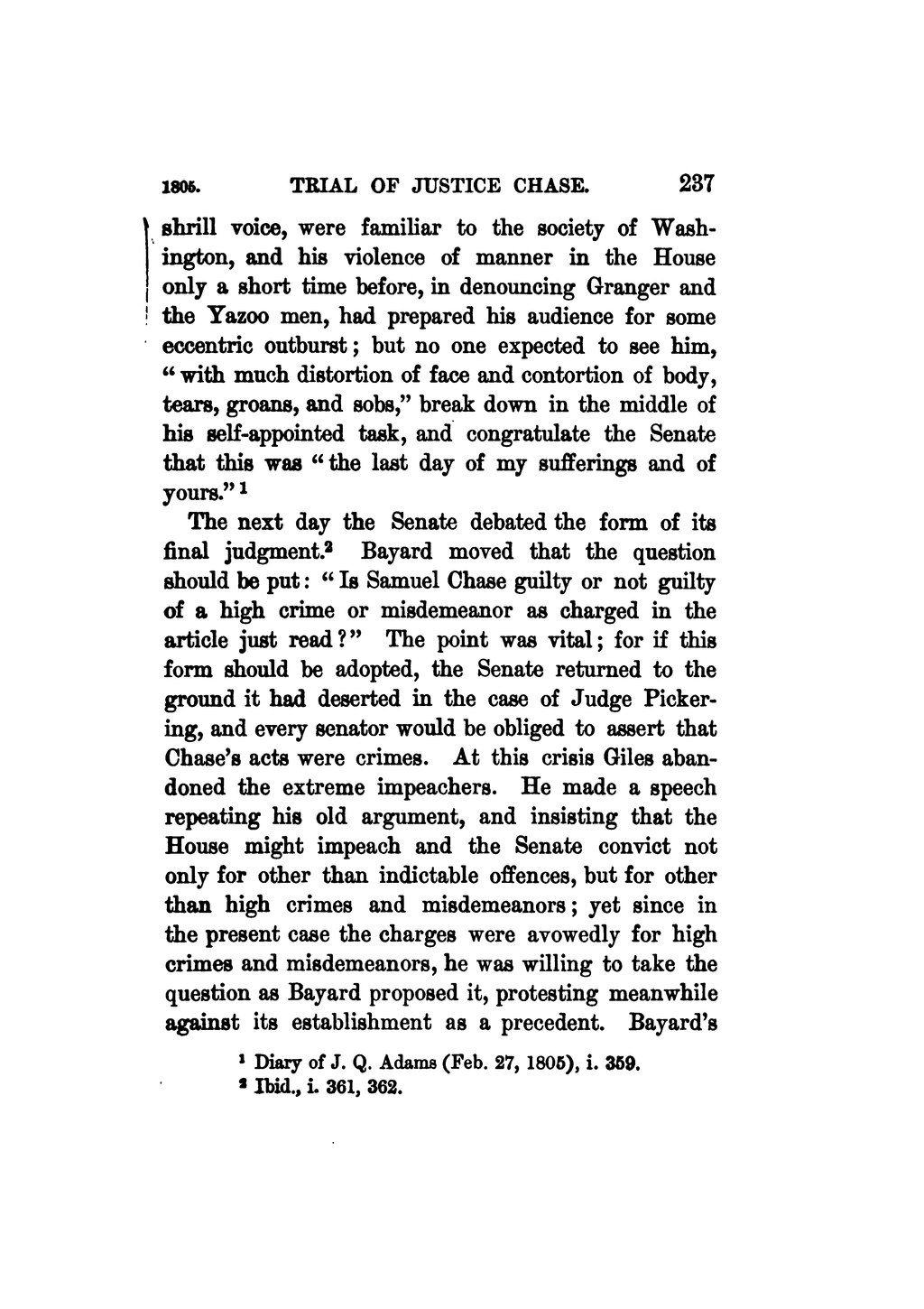shrill voice, were familiar to the society of Washington, and his violence of manner in the House only a short time before, in denouncing Granger and the Yazoo men, had prepared his audience for some eccentric outburst; but no one expected to see him, "with much distortion of face and contortion of body, tears, groans, and sobs," break down in the middle of his self-appointed task, and congratulate the Senate that this was "the last day of my sufferings and of yours."[1]
The next day the Senate debated the form of its final judgment.[2] Bayard moved that the question should be put: "Is Samuel Chase guilty or not guilty of a high crime or misdemeanor as charged in the article just read?" The point was vital; for if this form should be adopted, the Senate returned to the ground it had deserted in the case of Judge Pickering, and every senator would be obliged to assert that Chase's acts were crimes. At this crisis Giles abandoned the extreme impeachers. He made a speech repeating his old argument, and insisting that the House might impeach and the Senate convict not only for other than indictable offences, but for other than high crimes and misdemeanors, he was willing to take the question as Bayard proposed it, protesting meanwhile against its establishment as a precedent. Bayard's
